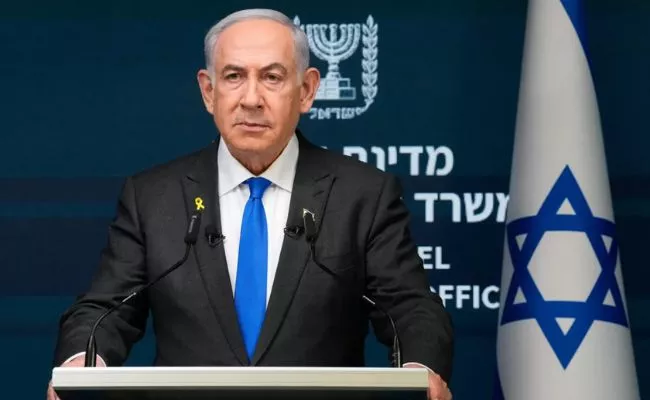3 killed as bridge collapses in Gujarat, disrupting Anand-Vadodara route
.gif)
.gif)

Israeli Prime Minister Benjamin Netanyahu has confirmed Israel’s direct involvement in a September attack on Hezbollah operatives in Lebanon, using a highly unusual strategy that saw thousands of pagers and walkie-talkies rigged to detonate remotely. Netanyahu disclosed the operation, now being referred to as the “pager operation,” in a cabinet meeting on Sunday, detailing how the mission was designed to cripple Hezbollah’s communication network while targeting the militant group’s personnel.
In a statement released by his spokesperson, Omer Dostri, Netanyahu confirmed, "I greenlighted the pager operation in Lebanon," highlighting Israel’s commitment to reducing threats from the Iran-backed organization. The operation reportedly led to the deaths of approximately 40 Hezbollah members and injuries to over 3,000.
In the same meeting, Netanyahu also revealed that an additional precision strike in Beirut was carried out on direct orders, allegedly resulting in the death of Hezbollah’s leader, Hassan Nasrallah. Netanyahu acknowledged that the operation had proceeded despite significant resistance from high-ranking defense officials, who were reportedly concerned about the risks associated with such an unconventional method of attack.
According to military sources, the attack took place over two days, on September 17 and 18, as pagers used by Hezbollah operatives were detonated almost simultaneously across multiple Lebanese locations. Designed without GPS, microphones, or cameras, these devices had been chosen by Hezbollah specifically to evade Israeli surveillance. However, Israeli intelligence was reportedly able to compromise the devices’ security and activate them in unison, resulting in a devastating blow to the organization’s personnel and infrastructure.